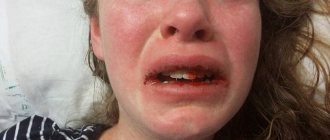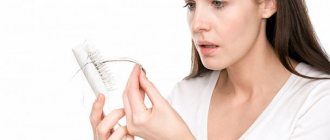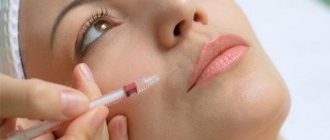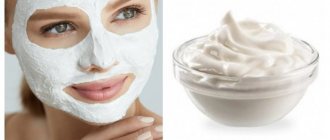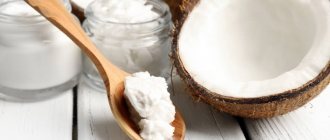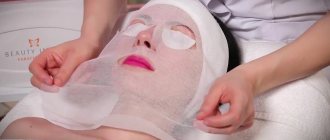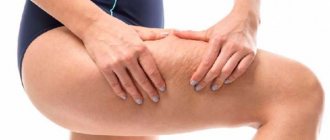Redness and itching during pregnancy can significantly spoil the appearance and create additional inconvenience for the woman. In such a situation, it will be very useful to learn how to eliminate redness and itching.
Redness and itching are quite unpleasant phenomena that can attack a pregnant woman. To get rid of them, it is important to have information on how to eliminate them.
One of the significant problems for every woman preparing to become a mother is changes in her face. This is redness and itching of the skin of the face, which can cause a woman a lot of discomfort. All this happens due to the activity of hormones during pregnancy. This becomes more noticeable in the second trimester.
Skin problems in pregnant women
Due to hormonal changes, the functioning of the sebaceous glands, tone and blood supply to the epidermis changes. The most common skin changes during pregnancy are:
- Acne. Painful rashes on the face, chest, and shoulders are a phenomenon characteristic of the first months of pregnancy. The appearance of acne is promoted by an increase in progesterone levels. After the body adapts to the new condition, the rash goes away. This usually occurs in the second trimester. Read more about acne during pregnancy →
- Dark spots. A pregnant woman's body produces more melanin, the hormone responsible for skin pigmentation. This causes yellow-brown spots to appear on the face, neck, chest, stomach, and arms. Pigmentation most often occurs in late pregnancy and goes away 2-3 months after birth, sometimes the period of skin restoration lasts until the end of breastfeeding.
- Spider veins. During the second trimester of pregnancy, the volume of circulating blood increases, causing flushing of the face and limbs. If the vessels are weak, red spots - spider veins - form in place of the capillaries that burst due to stress. Such defects disappear within 3-4 months after birth, but some of them can persist for up to two years or more.
- Stretch marks. A drop in collagen production during pregnancy, aggravated by stretching of the skin, leads to the formation of thread-like scars of various shades - from pearlescent to purple. Changes become noticeable closer to the third trimester; the area of risk is the abdomen, hips, and chest. Stretch marks do not disappear completely, but after childbirth they gradually fade.
- Peeling. The body's increased need for water, which occurs in the second trimester, as well as a decrease in the activity of the sebaceous glands, provoke peeling and thinning of the skin in pregnant women. The condition can be alleviated by normalizing the drinking regime and selecting moisturizers. The problem will go away completely when the body recovers after childbirth.
- Itching. From the second trimester until childbirth, pregnant women may experience itching in the abdomen and nipples, which is caused by skin stretching and dryness. But sometimes the sensations become unbearable and spread to the whole body. This is a sign of a dangerous condition - cholestasis of pregnancy, which occurs when the outflow of bile is disrupted. Most often, the complication occurs in the last 10 weeks of pregnancy and goes away 2 weeks after birth; the problem is corrected with medication.
Folk remedies
There are a large number of folk remedies, but everything should be tested on the skin of the hands, and after a positive result, applied to the skin of the face and neck.
- scrub made from drunk coffee, olive oil and sour cream - will remove the stratum corneum and make it smooth, silky, nourished with useful substances
- a mask of grated cucumber and cottage cheese - will lighten the skin, give it radiance, eliminate bruises, and make it silky;
- Instead of tonic, you can use decoctions: chamomile, calendula, mint, wipe your face in the morning and evening, or freeze the decoction and wipe your skin with ice. This procedure will refresh, give it tone, and relieve inflammation;
- a compress of black tea around the eyes will relieve fatigue, reduce swelling and bruising;
- facial massage with olive or vegetable oil will help remove excess fluid and nourish the skin with beneficial microelements.
Before using folk remedies, it is better to consult a gynecologist, who will confirm your choice or recommend other remedies.
Facial skin care
Basic facial skin care during pregnancy consists of cleansing, toning, moisturizing and protecting. For washing during this period, it is better to use water without chlorine or chamomile decoction (1 tablespoon of dried inflorescences per 0.5 liter of water). For acne, it is important to cleanse the skin twice a day; you can use baby soap or a special foam for washing, avoiding excessive rubbing of the inflamed areas.
To maintain tone, water-based tonics with natural ingredients are recommended. For example, containing extracts of chamomile, calendula, nettle and other herbs.
For pigmentation, you can use a homemade lemon tonic (1 tbsp juice per 100 ml of water). A mask made from fresh cucumber juice also perfectly tones and whitens. Soak gauze with it and apply a compress to the face for 20 minutes.
It is better to moisturize the skin during pregnancy with light creams containing allantoin, glycerin, aloe vera, almond oil, avocado or jojoba. If dryness and flaking are clearly expressed, it is worth adding moisturizing with thermal water in the form of a spray.
Is it possible to make masks
Pregnancy is not a reason to refuse all procedures; natural-based masks are simply necessary for depleted skin. The most effective masks at home for the skin of the face and neck are:
- white and blue clay;
- mask made from sour cream, sour milk, cottage cheese;
- cucumber
You can also use special masks developed by cosmetic companies for pregnant women: “Our Mother”, “Avent”, “VICHI”, “Weleda” and other certified products.
Body care
How to take care of your skin during pregnancy to prevent stretch marks from appearing? Although a way to completely eliminate their occurrence has not yet been found, the risks can be minimized.
Prevention measures:
- Massage with a dry brush. The bristles should be soft or medium hard. The massage is performed dry, moving from bottom to top. It is not advisable to treat the abdominal area, inner thighs and arms.
- Cold and hot shower. If you have not practiced it before, you need to start carefully. The difference between cold and hot water should be no more than 10 °C, the exposure time to each temperature should be 15-20 seconds, and the alternation frequency should be 3-4 times. Recommended areas for treatment are legs, buttocks, chest, thighs.
- Moisturizing and nourishing products. This includes oils, creams and body gels. It is better to use special cosmetics for expectant mothers, for example, Maternea or Weleda products. Alternatively, you can use olive, almond or argan oil. Care products are applied after a shower while the body is slightly damp.
Harmful chemicals
Many facial products contain some chemicals.
You should avoid using products that include:
- retin-A, retinol and retinyl palmitate;
- hydroquinone;
- trichloroacetic acid;
- benzoyl peroxide;
- Tazorac and Accutane;
- aluminum chloride;
- formaldehyde;
- chemical sunscreens;
- tetracycline;
- dihydroxyacetone.
If you find an error, please select a piece of text and press Ctrl+Enter.
Lifestyle
Skin problems during pregnancy are often caused by physiological reasons, but the influence of lifestyle on appearance cannot be denied. Sometimes pregnant women stop monitoring their diet and activity, which worsens the situation.
To prevent your skin from deteriorating during pregnancy, you need to strictly limit chocolate, cakes and other fast carbohydrates that cause acne and weight gain (stretch marks). It is also worth excluding dishes with excessive amounts of animal fats, snacks and minimizing caffeine consumption.
For beautiful skin, your diet should include:
- broccoli, avocado, nuts are sources of vitamin E;
- seasonal fruits and vegetables rich in fiber;
- pumpkin and carrots, replenishing the need for vitamin A;
- cereals are a storehouse of minerals and vitamins;
- fish is a source of fatty acids and zinc;
- fermented milk products to normalize intestinal function;
- healthy drinks - herbal and green tea, purified water.
Some advice for expectant mothers
In order for your curls to always be beautiful, manageable and not fall out, you must follow several rules:
- Use only natural-based hair care products.
- During pregnancy, you need to apply hair masks 1-2 times a week.
- During pregnancy, you should avoid dyeing and perming your hair. These procedures will only worsen the situation, and in some cases even harm the unborn baby.
- Eat properly and balanced.
- Take complex vitamins.
- Protect hair from direct sunlight.
Sources:
https://xvatit.com/sneeze/pregnant/146787-mozhno-li-delat-maski-dlya-lica-beremennym.html https://cosmo-larabar.ru/blog/kosmetichka/liczo-vo-vremya-beremennosti .-uxod.html https://hairface.ru/maski-dlya-volos-pri-beremennosti.html
Pigmentation on the face during pregnancy
Due to hormonal changes during pregnancy, pigmentation often occurs. As a rule, it appears in the corners of the eyes and above the upper lip.
Important! Many whitening cosmetic ingredients (kojic acid, arbutin, hydroquinone) are very active. They are extremely undesirable for pregnant women.
To prevent pigmentation during pregnancy:
- do not sunbathe;
- be sure to use SPF protection 30+.
Important! Ideally, the filters should be physical (zinc oxide and titanium dioxide). Chemical filters one way or another cause a chemical reaction in the body, the effect of which on the baby has been studied little.
Finding a face cream with only physical filters is difficult, but possible. Look for children's cosmetics, organics and pharmacy products for sensitive skin.
You can also use mineral powder with physical filters on top of day cream as SPF. The main thing is that it has a high protection factor, and you update the powder every couple of hours.
After childbirth or the end of lactation, pigmentation that appeared during pregnancy often goes away on its own. And if suddenly it remains, then you can safely use whitening cosmetics, peelings and even laser. In the meantime, cover up the spots that appear with a mineral concealer.
The appearance of excess hair
Many mothers start to get scared when excess hair begins to appear on their body.
This occurs due to the production of male hormones, which are associated with disruption of the ovaries and adrenal glands. Excess hair may appear on the face and chest. Hair, which was barely noticeable before pregnancy, will begin to grow under the influence of male hormones and become coarser. In addition to hair, exposure to male hormones can cause acne (acne)
It is forbidden to use depilatory creams because they can harm the baby. If the hair gets in the way too much, it is best to get rid of it mechanically. If you have excessive hair growth, it is best to consult an endocrinologist.
The woman's condition returns to normal approximately six months after childbirth.
Heat rash and diaper rash
Miliaria and diaper rash can occur in a pregnant woman. Because during pregnancy the body’s work increases, including the sweat glands actively working.
Miliaria occurs due to clogged pores. In order to cope with it, it is necessary to empty the pores and cool the skin as often as possible. A pregnant woman's everyday clothes should be made of natural cotton fabrics, especially underwear. For areas of the skin where prickly heat occurs, it is necessary to arrange air baths as often as possible. The use of fatty creams is prohibited; they clog the pores very much.
Diaper rash most often occurs where the skin touches each other. It is necessary to monitor the hygiene of problem areas as carefully as possible and, after drying, treat the areas with powder or talcum powder.
In summer, the problem may worsen due to heat
Miliaria and diaper rash usually occur in the third trimester of pregnancy and begin to subside immediately after childbirth.
If there is any discomfort on the skin, it is worth discussing it with your doctor so that he can help you sort out the problem and prescribe the correct treatment. Then pregnancy will be easy and beautiful.
